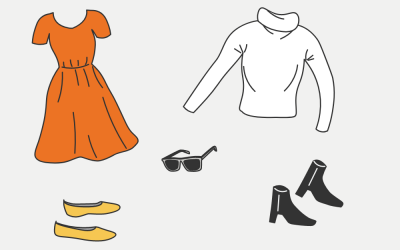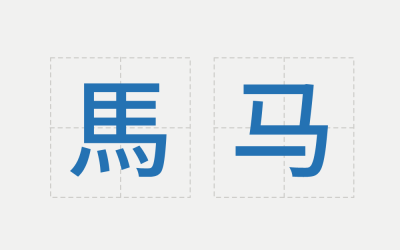If you had a chance to talk to many Chinese locals, you might have noticed that people from different regions speak Chinese with different accents. Mandarin Chinese in the South and North can be slightly different sometimes. On one hand, it’s a relief – you don’t have to worry too much if don’t understand some words, as the person you are talking to might also “share the blame”.
But pronunciation is not the only barrier here. There is a drastic difference in the use of certain words during a conversation between, say, a northerner and a southerner. We have prepared 4 typical examples for you to have a better understanding of different people’s speaking habits.
What: 什么 shénme vs. 啥 shá

In Mandarin Chinese, these two words both mean “what”. 什么 shénme is more commonly used in East China and South China, and people from North China tend to use 啥 shá more often. One interesting thing about the difference between these two words is that although Shanghai and Chengdu are considered cities located in East China and South China respectively, the pronunciation of “what” in the Shanghai and Sichuan dialects is very similar to 啥 shá, which is again preferred by people from the North.
Let’s have a look at some examples:
South: 我们明天干什么? Wǒmen míngtiān gàn shénme?
North: 我们明天干啥? Wǒmen míngtiān gàn shá?
🇬🇧: What are we going to do tomorrow?
South: 你什么意思? Nǐ shénme yìsi?
North: 你啥意思? Nǐ shá yìsi?
🇬🇧: What do you mean?
South: 我什么都没有 Wǒ shénme dōu méiyǒu
North: 我啥都没有 Wǒ shá dōu méiyǒu
🇬🇧: I have nothing
How: 怎么 zěnme vs. 咋 zǎ

These two words mean “how”. Pretty similar to the difference between 什么 shénme and 啥 shá, 怎么 zěnme is widely used in South China, whereas 咋 zǎ is the first choice for people from the North.
For example:
South: 怎么办? Zěnme bàn?
North: 咋办? Zǎ bàn?
🇬🇧: What should we do?
South: 这件衬衫怎么那么贵呢? Zhè jiàn chènshān zěnme nàme guì ne?
North: 这件衬衫咋那么贵呢? Zhè jiàn chènshān zǎ nàme guì ne?
🇬🇧: Why is this shirt so expensive?
Wife: 老婆 lǎopó vs. 媳妇儿 xífur

South: 老婆 lǎopó
North: 媳妇儿 xífur
🇬🇧: wife
Daughter: 女儿 nǚer vs. 闺女 guīnǚ

South: 女儿 nǚ’er
North: 闺女 guīnǚ
🇬🇧: daughter
In both pairs, the first word is usually the only option that Southerners would choose when it comes to wife and daughter. Consequently, the latter would usually be the only option for northerners when they want to express these two words. Chinese learners are advised to take notice of the use of these words as the “regional difference” is more distinct in both cases.
Here are some examples:
South: 我的老婆是英语老师 Wǒ de lǎopó shì yīngyǔ lǎoshī
North: 我的媳妇儿是英语老师 wǒ de xí fu er shì yīngyǔ lǎoshī
🇬🇧: My wife is an English teacher.
South: 我的女儿今年七岁了 Wǒ de nǚ’ér jīnnián qī suìle
North: 我的闺女今年七岁了 wǒ de guīnǚ jīnnián qī suìle
🇬🇧: My daughter is seven years old.
Which of these words and phrases have you heard before?
What other regional differences have you noticed?
[If you like this post, you can also have a look at our post about “3 Ways to Use Chinese “Hao” in Speech”!]
Leave your thoughts on Twitter – reach out to us at @thatsmandarin!









0 Comments